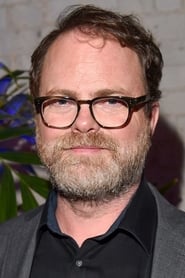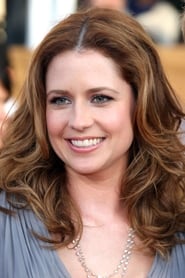
Ask Your Own Question
What is the plot?
In "Season 4 Deleted Scenes Part 3" of The Office, the episode opens with a scene featuring Michael Scott in the conference room, where he is attempting to motivate his employees. He enthusiastically discusses the importance of teamwork and camaraderie, but his over-the-top enthusiasm is met with a mix of eye rolls and disinterest from the staff. Michael's desire to be seen as a great boss is palpable, and he struggles to connect with his team, revealing his deep-seated need for approval.
The next scene shifts to Dwight Schrute, who is in the break room, showcasing his latest beet-related product. He passionately explains the benefits of his new beet salad, trying to convince his coworkers to try it. His intense dedication to beets is both amusing and slightly off-putting to his colleagues, who are hesitant to engage with his culinary creation. Dwight's determination to promote his product highlights his competitive nature and desire for recognition.
Following this, there is a scene with Jim Halpert and Pam Beesly at their desks. They share a light-hearted moment as they discuss their plans for the weekend. Jim's playful teasing of Pam reveals their close relationship and the comfort they find in each other's company. Pam's laughter and genuine enjoyment of Jim's company underscore the budding romance between them, showcasing their chemistry and the emotional connection they share.
The episode then cuts to a scene where Andy Bernard is trying to impress Angela Martin with his a cappella singing. He performs a rendition of a popular song, but his enthusiasm is met with Angela's disapproval. She is unimpressed and somewhat annoyed by his attempts to gain her attention, which highlights Andy's often misguided efforts to win over his coworkers. His vulnerability and desire for acceptance are evident as he tries to navigate the complexities of office relationships.
In another scene, Michael is seen in his office, talking to the camera about his plans for a team-building exercise. He expresses his hope that this will bring the office closer together, but his lack of understanding of what his employees actually want leads to a comedic disconnect. His earnestness is juxtaposed with the reality of his coworkers' indifference, showcasing the ongoing theme of Michael's misguided leadership.
The episode also features a moment where Ryan Howard is discussing his new position with Kelly Kapoor. He is trying to assert his authority, but Kelly's bubbly personality and tendency to dominate the conversation make it difficult for him to be taken seriously. This interaction highlights Ryan's struggle with his new role and his desire to be seen as competent, while also showcasing Kelly's vibrant and somewhat overwhelming presence.
As the episode progresses, there is a scene where Dwight and Michael engage in a humorous debate about the best way to handle a potential client. Dwight's aggressive approach contrasts sharply with Michael's more laid-back style, leading to a comedic clash of personalities. Their differing philosophies on business reflect their individual motivations and the dynamics of their relationship as boss and employee.
The final scenes of the episode return to Jim and Pam, who share a quiet moment together at their desks. They reflect on the day's events, and their conversation reveals their growing bond and mutual support. The warmth between them is palpable, and it serves as a poignant reminder of the personal connections that can flourish even in a chaotic office environment. The episode concludes with a sense of camaraderie among the characters, despite the comedic misadventures that have unfolded throughout the day.
What is the ending?
In the ending of "Season 4 Deleted Scenes Part 3" from The Office, various deleted scenes showcase the characters in humorous and awkward situations, highlighting their relationships and dynamics. The scenes do not follow a traditional narrative arc but instead provide glimpses into the everyday lives of the employees at Dunder Mifflin, revealing their quirks and interactions.
As the episode unfolds, we see Michael Scott attempting to impress his employees with a motivational speech, but it quickly devolves into his usual awkwardness. Jim Halpert and Pam Beesly share a light-hearted moment, reflecting their growing relationship. Dwight Schrute continues to assert his dominance in the office, often clashing with Jim. The scenes culminate in a series of comedic exchanges that emphasize the camaraderie and tension among the staff, leaving viewers with a sense of familiarity and warmth towards the characters.
In a more detailed narrative:
The episode opens with Michael Scott standing in front of the office, a confident smile plastered on his face as he prepares to deliver a motivational speech. He gestures animatedly, trying to engage his employees, but his words quickly become disjointed and awkward. The camera captures the bemused expressions of his coworkers, particularly Jim and Pam, who exchange knowing glances, fully aware of Michael's tendency to miss the mark.
Cut to Jim, who is at his desk, playfully mocking Michael's speech under his breath. Pam, sitting nearby, chuckles softly, her eyes sparkling with affection for Jim. Their chemistry is palpable, and the scene highlights the comfort they find in each other amidst the chaos of the office.
Next, we shift to Dwight Schrute, who is in the break room, fervently discussing his latest beet farming techniques with a disinterested Angela Martin. Dwight's passion is evident, but Angela's lack of enthusiasm only fuels his determination to prove his expertise. The tension between them is thick, showcasing Dwight's relentless pursuit of validation and Angela's cool demeanor.
As the episode progresses, we see a series of quick cuts featuring various characters. Kevin Malone is seen attempting to balance a stack of cookies on his head, while Stanley Hudson rolls his eyes, clearly unimpressed. Phyllis Vance and Bob Vance share a sweet moment, their relationship radiating warmth amidst the office's antics.
In another scene, Michael tries to rally the team for a group activity, but his enthusiasm is met with reluctance. The employees' body language speaks volumes; they are weary of Michael's antics but also fond of him. This moment encapsulates the essence of their relationships--an intricate blend of annoyance and affection.
The episode concludes with a montage of the characters engaging in their daily routines, laughter echoing through the office. The camera lingers on Jim and Pam, who share a quiet moment, their bond deepening as they navigate the ups and downs of office life together. Dwight, still in his own world, continues to assert his dominance, while Michael, oblivious to the chaos around him, remains the heart of the office.
As the screen fades to black, viewers are left with a sense of nostalgia for the characters and their unique dynamics, encapsulating the essence of The Office--a blend of humor, heart, and the everyday struggles of working life. Each character's fate remains intertwined, their relationships evolving as they continue to navigate the complexities of their workplace.
Is there a post-credit scene?
In "The Office," Season 0, titled "Specials," episode 63, "Season 4 Deleted Scenes Part 3," there is no post-credit scene. The episode consists of a collection of deleted scenes from Season 4, showcasing various moments that were cut from the original airing. These scenes provide additional context and humor to the characters and their interactions, but they do not include a specific post-credit sequence. The focus remains on the comedic dynamics within the office, highlighting the relationships and quirks of the characters without extending into a narrative beyond the main content.
What insights do the deleted scenes provide about Andy Bernard's character?
The deleted scenes offer insights into Andy Bernard's character, particularly his need for validation and his musical talents. One scene features Andy singing a cappella, showcasing his enthusiasm and desire to be liked, while also hinting at his insecurities and the lengths he goes to gain acceptance from his peers.
What deleted scenes feature Michael Scott's interactions with Jan Levinson?
In the deleted scenes, Michael Scott's interactions with Jan Levinson are highlighted, showcasing their complicated relationship. One scene depicts Michael attempting to impress Jan with his knowledge of wine, leading to awkward moments as he tries to navigate their personal and professional boundaries.
Are there any deleted scenes that show Dwight Schrute's beet farm?
Yes, there are deleted scenes that feature Dwight Schrute discussing his beet farm. In these scenes, he passionately explains the intricacies of beet farming, revealing his deep connection to the land and his competitive nature, as he tries to convince his coworkers of the superiority of his beets.
What humorous moments arise from Jim Halpert's pranks on Dwight in the deleted scenes?
The deleted scenes include several humorous moments where Jim Halpert executes pranks on Dwight Schrute. One notable scene shows Jim placing Dwight's stapler in Jell-O again, which elicits a classic reaction from Dwight, showcasing their ongoing rivalry and Jim's playful nature.
Do any deleted scenes explore Pam Beesly's artistic aspirations?
Yes, there are deleted scenes that delve into Pam Beesly's artistic aspirations. In these moments, Pam discusses her desire to pursue art more seriously, revealing her internal struggle between her job at Dunder Mifflin and her passion for painting, which adds depth to her character.
Is this family friendly?
"Season 4 Deleted Scenes Part 3" from "The Office" contains several moments that may be considered objectionable or upsetting for children or sensitive viewers. Here are some aspects to be aware of:
-
Innuendos and Adult Humor: The show often includes sexual innuendos and jokes that may not be appropriate for younger audiences.
-
Workplace Dynamics: There are scenes that explore complex adult relationships and conflicts, which may be confusing or uncomfortable for children.
-
Mild Profanity: Some characters use mild swear words or phrases that might not be suitable for all viewers.
-
Emotional Tension: Certain scenes depict emotional struggles or awkward situations that could be distressing for sensitive viewers.
-
Mocking and Sarcasm: The humor often relies on sarcasm and mockery, which may not resonate well with younger audiences or those who are sensitive to bullying or teasing.
Overall, while the show is a comedy, its themes and humor may not be entirely family-friendly.














